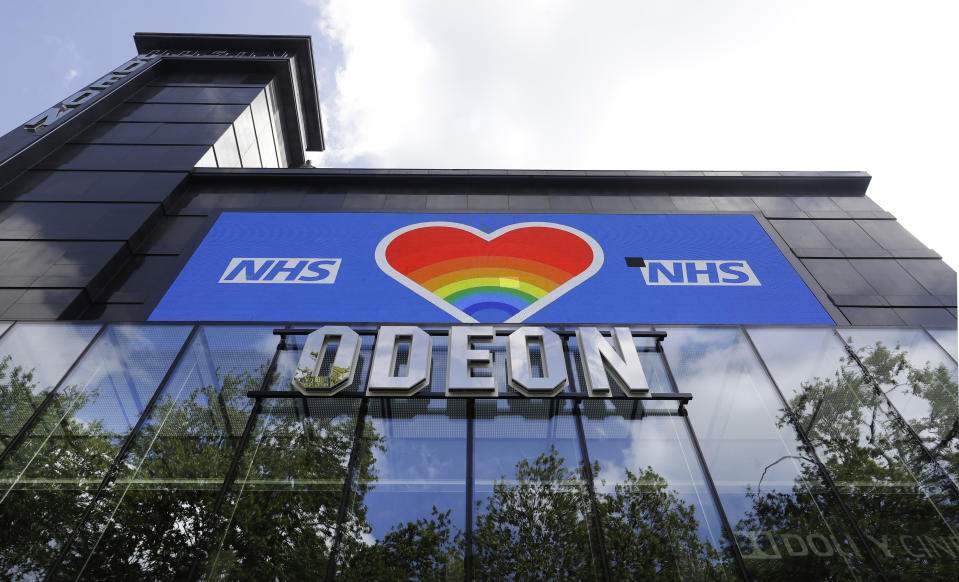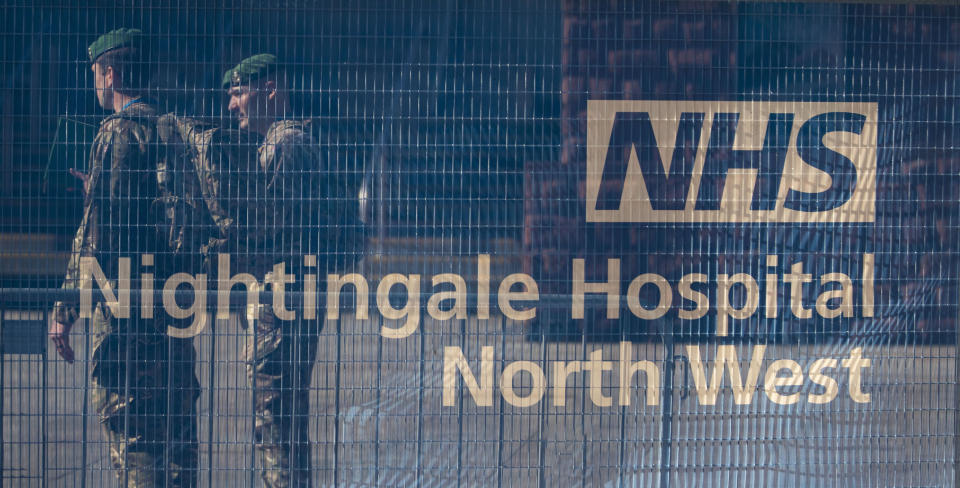Scientists warn UK must prove it's ready for risk of second coronavirus wave in winter
As more lockdown restrictions are lifted, the government has been warned that it must be prepared for a second wave of coronavirus this winter.
Boris Johnson announced on Tuesday that restaurants, pubs and cinemas in England will be allowed to open over the next few weeks as the rate of COVID-19 infections and deaths continues to fall.
However, health leaders said urgent action is needed to prevent further loss of life and to protect the economy amid growing fears of a renewed outbreak in the coming months.
The appeal is backed by the presidents of the Royal Colleges of Physicians, Surgeons, GPs and Nursing – as well as the chairman of the British Medical Association.

What do the health leaders say?
In the biggest easing of lockdown measures to date, the prime minister said the two-metre social-distancing rule would be replaced with a "one-metre plus" rule paving the way for the hospitality industry to begin reopening from 4 July.
But, in an open letter to the leaders of all the UK political parties published in the British Medical Journal, the health leaders called for a "rapid and forward-looking assessment" of the state of national preparedness in the event of a renewed flare-up.
"While the future shape of the pandemic in the UK is hard to predict, the available evidence indicates that local flare ups are increasingly likely and a second wave a real risk," they said.
"Many elements of the infrastructure needed to contain the virus are beginning to be put in place, but substantial challenges remain.
"The job now is not only to deal urgently with the wide-ranging impacts of the first phase of the pandemic, but to ensure that the country is adequately prepared to contain a second phase.”
They called for the creation of a cross-party commission with a "constructive, non-partisan, four nations approach", to be established to develop practical recommendations for action based on what had been learned so far.
"We believe this will be essential if the UK is to get ahead of the curve," they said.
"It should focus on those areas of weakness where action is needed urgently to prevent further loss of life and restore the economy as fully and as quickly as possible.”
Speaking on Good Morning Britain, Dr Hilary Jones also warned that a second wave of the virus was “inevitable”.
He said: "If you ask a doctor or a nurse in critical care, not only are they exhausted, but they are really worried about it, they are preparing for a second spike right now because inevitably it's going to happen, we are seeing a plateau now, but that plateau could easily increase.
"Control of the virus is not dependent on the guidance, it's dependent on the public understanding how the virus works, how it transmits and how it kills people, and it will go on killing people until everybody realises that this is a highly transmittable virus which is going to be with us for some considerable time,"
Lockdown easing welcomed
The letter comes as Imperial College economist Professor David Miles told BBC Radio 5 the easing of lockdown measures was overdue.
He said: "We probably have gone past the point some weeks ago where the benefits of keeping in place the lockdown were large enough to match the rising and enormous costs of lockdown.”
The easing of the two-metre rule was warmly welcomed by the hospitality sector which had warned that many pubs, cafes and restaurants would be forced to close if it remained in place.

Hairdressers, barbers, cinemas, museums and art galleries in England are now also preparing to open their doors to visitors again from 4 July.
However, "close proximity" businesses, including nightclubs, soft play centres, indoor gyms, nail bars and beauty salons, will remain shut, as will bowling alleys and water parks.
Risks remain
At the final daily No 10 briefing, both the government's chief scientific adviser Sir Patrick Vallance and the chief medical officer for England Professor Chris Whitty stressed the easing was not a "risk-free" move.
Whitty said it was "absolutely critical" that people continued to observe social distancing, taking steps to mitigate the spread of the disease when it was not possible to stay two metres apart.
He warned the virus was likely to be present in the UK until at least the spring of 2021 and that if people returned to their normal patterns of behaviour "we will get an uptick for sure”.

Sir Patrick also warned that despite falling numbers of people infected with the disease, the threat remained.
"Don't be fooled that this means it has gone away. The disease is growing across the world. It is coming down in the UK but it hasn't gone away," he said.
Ministers have already said the temporary Nightingale Hospitals set up in case the NHS was overwhelmed by COVID-19 cases will remain on standby over the coming months.
Coronavirus: what happened today
Click here to sign up to the latest news, advice and information with our daily Catch-up newsletter
Read more about COVID-19
How to get a coronavirus test if you have symptoms
How easing of lockdown rules affects you
In pictures: How UK school classrooms could look in new normal
How public transport could look after lockdown
How our public spaces will change in the future
Help and advice
Read the full list of official FAQs here
10 tips from the NHS to help deal with anxiety
What to do if you think you have symptoms
How to get help if you've been furloughed

 Yahoo News
Yahoo News 

